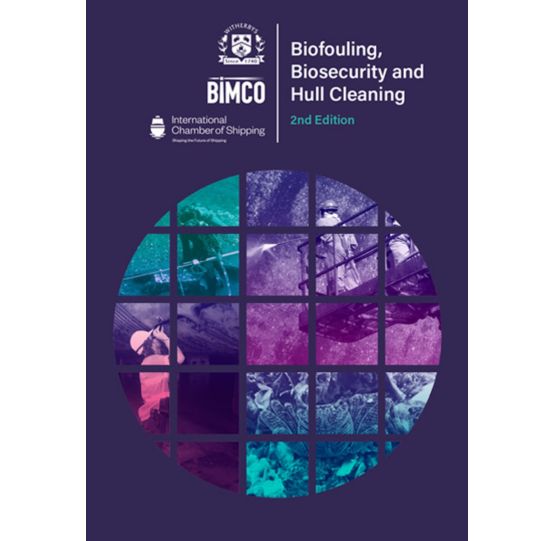Biofouling, Biosecurity and Hull Cleaning
S$315.94
2nd Edition
This fully illustrated publication describes in detail the problems that biofouling can cause to ship operations and the marine environment. It examines the use of anti-fouling systems to prevent the build-up of biofouling as well as the options available for ship cleaning, in particular the importance of in-water cleaning. It also sets out the revised 2023 IMO Biofouling Guidelines, specific regional mandatory biofouling requirements and the mandatory IMO AFS Convention. It also provides data sheets on a number of hull cleaning companies worldwide.
In stock
The build-up of biofouling can have a significant impact on ship hydrodynamics and energy efficiency as well as interfere with efficient operation of internal seawater systems. It can also threaten the marine environment through the transfer of non-native invasive species, or through the use of anti-fouling systems containing certain toxic substances.
This publication identifies ship structures that are vulnerable to biofouling, factors affecting the rate of build-up and the effect of biofouling on performance and operating costs.
It looks in detail at biofouling management, including the use of biocidal and non-biocidal paints and coatings, corrosion, marine growth prevention systems, in-water cleaning and treatment in dry dock. It briefly discusses several examples of environmental research initiatives into the effects of biofouling.
The publication sets out current biofouling legislative requirements, including IMO?s recently revised 2023 Biofouling Guidelines, updates to the International Convention on the Control of Harmful Anti-fouling Systems on Ships (AFS Convention), and individual national and regional biofouling legislation. It provides templates for the Biofouling Management Plan and the Biofouling Record Book from the updated 2023 Biofouling Guidelines.
Finally, it provides a selection of data sheets summarising the services offered and area of operation of hull cleaning and inspection companies worldwide. This section includes world maps to enable readers to quickly identify companies operating in particular geographic locations.
Witherbys
Witherbys titles are developed using scripts developed by technical experts that are peer reviewed within work groups. Typically, they seek to improve understanding of the regulations, recommendations and guidelines issued by Industry.
Witherbys staff have significant expertise in the fields of navigation and hazardous cargoes as well as in the presentation of complex subjects in a graphic and easy to understand manner.
BIMCO
BIMCO is the world?s largest direct-membership organisation for shipowners, charterers, shipbrokers and agents. In total, around 60% of the world?s merchant fleet is a BIMCO member, measured by tonnage (weight of the unloaded ships).
The organisation has NGO status and is based in Copenhagen, Denmark, with offices in Athens, Singapore and Shanghai.
With around 1900 member companies across 120 countries, from the largest shipowners in the world to small local port agents and law firms, BIMCO represents a wide range of maritime companies and organisations.
BIMCO?s goal is to secure a level playing field for the global shipping industry. BIMCO therefore works to promote and secure global standards and regulations for the maritime sector. The organisation?s century long effort into creating standard contracts and clauses is an expression of that aim.
The International Chamber of Shipping (ICS)
ICS is the principal international trade association for the shipping industry, representing shipowners and operators in all sectors and trades. ICS membership comprises national shipowners' associations in Asia, Europe and the Americas whose member shipping companies operate over 80% of the world's merchant tonnage.
Established in 1921, ICS is concerned with all technical, legal, employment affairs and policy issues that may affect international shipping.
ICS represents shipowners with the various intergovernmental regulatory bodies that impact on shipping, including the International Maritime Organization.
ICS also develops best practices and guidance, including a wide range of publications and free resources that are used by ship operators globally.
https://www.ics-shipping.org/about-ics/


